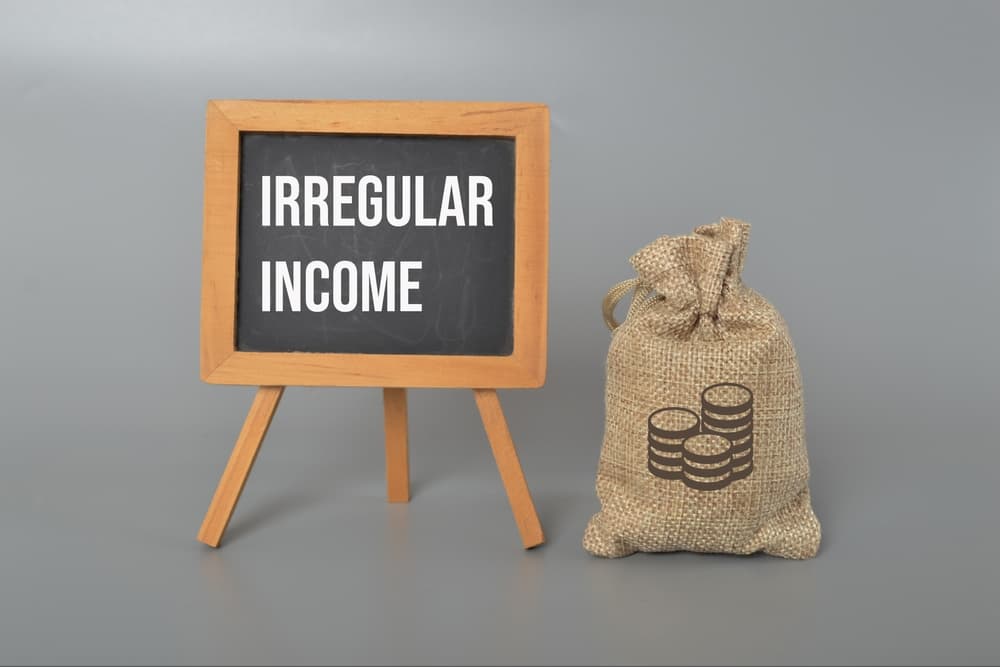How To Plan For Retirement On An Irregular Income?
As the gig economy expands, where job-hopping and moonlighting are common, people’s incomes have become increasingly unpredictable, making retirement planning a challenge.
As the gig economy expands, where job-hopping and moonlighting are common, people’s incomes have become increasingly unpredictable, making retirement planning a challenge.

Unpredictable Income
Advertisement
When Vikrant Singh (name changed) was suddenly laid off from an IT company where he worked as a UX designer in July 2023, he was left shell-shocked. And, while the 32-year-old software professional looks for another job, the dismissal has obviously derailed his monthly budget. His situation could be even more serious if he doesn’t find a stable income source soon, which can further risk his long-term financial goals. Singh’s predicament is common in today’s economic landscape, where job loss and irregular income have become the norm.
So, how can people like Singh streamline their everyday expenses or prepare for retirement goals when they are in between jobs or moonlighting? They may have concerns about their irregular savings or whether a late start in investing could affect their long-term financial goals like retirement. Answers to such questions can be often difficult and potentially infinite.
Advertisement
Preeti Zende, a Sebi-registered investment adviser and founder of Apanadhan Financial Services, says: “A forced break from work results in derailing financial management initially, but one should make sure that whenever they resume their work or get the next payment, a major part of this amount goes towards retirement goal planning.”
Zende adds, “Investment products are the same for these investors as well. They can simply invest in an index fund or a flexi-cap fund, and if risk appetite permits, then invest in mid-cap along with PPF/NPS (Public Provident Fund/National Pension System) and Gilt funds.”
Advertisement
However, the challenges are not limited to investing but prioritising goals and doing it correctly, ensuring that whenever there is extra money, it is invested towards achieving their goals. For example, Singh, who has ageing parents, wants to buy term insurance coverage and a health insurance plan. Once these immediate needs are sorted, he can plan for long-term needs like retirement planning, which requires consistent savings.
However, there are also other aspects that people with irregular income should consider.
Shweta Jain, founder of Investography Pvt Ltd, an investment firm, says: “First, build an emergency fund of 12 to 18 months. Start with a 50:50 asset allocation (plan); save a small amount every month, and don’t commit to a SIP. Continuity is the only way to build wealth.”
But what if the individual had to wait longer than expected for a regular income to ensure continuity, or the earnings and the savings are less than initially expected?
To overcome this issue, Zende stresses that a “self-disciplined approach” is essential. People with irregular income or a long gap between earnings should take out a part of their income whenever they get it and invest for retirement regardless of the amount. She opines that when there is no income guarantee, people should take it more seriously. She adds, “Whenever they get income flow, they should first invest that amount in a lump sum way, and then the rest should be spent. If the inflow is big enough, in that case, they can invest this money in a staggered manner with STP (Systematic Transfer Plan) so that they can spread their investments.”
For irregular investors, Jain suggests, “Ensure you don’t opt for too many lock-in products as liquidity might become an issue. Mutual funds are ideal, but ensure discipline, so you are not using your goal money for a whim.”
Finally, savings and investments are crucial, even if these are irregular. A typical SIP plan may not be helpful for people with inconsistent incomes. Instead, they should prioritise goals and save and invest whenever they can, or if it permits, they can go for one-time investments. But regardless of what they contribute, at the end of it, it would still be a great support post-retirement.
Advertisement
Unlike people in jobs who have a regular income and growth, freelancers or self-employed individuals have an erratic income. So, freelancers need to plan their retirement very carefully.
Before the financial yearends, one must accomplish several crucial financial obligations which can’t be done once missed. Also, check your preparedness to accomplish your goals in the next financial year.
The self-employed need to properly plan for their retirement, as they usually do not have the cushion of a regular income and an Employees’ Provident Fund. Here are five steps they need to take to prepare for their retirement
Get all the latest stories delivered to your inbox
Advertisement
Get all the latest stories delivered to your inbox